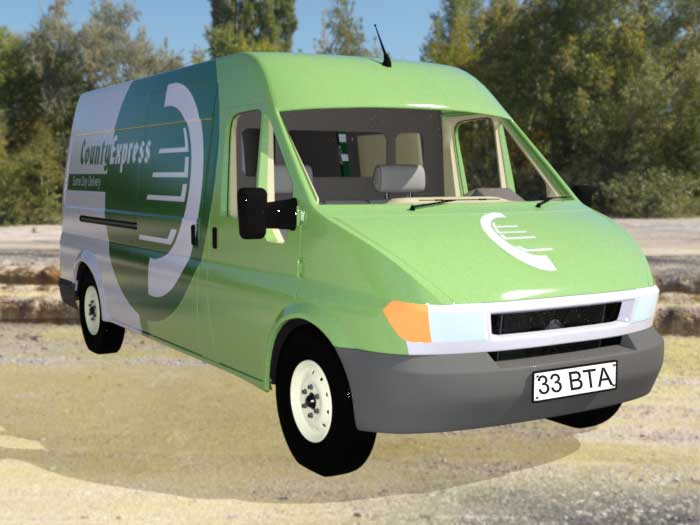Choosing the Right UK Van for Delivery Services
In the fast-paced world of delivery services, choosing the right van can make all the difference between success and failure for an enterprise.
Understanding Your Needs
Firstly, you need to understand your requirements. Are you delivering small parcels within the city or larger items across the country? Do you require a refrigerated van for food deliveries? Understanding the nature of your delivery service will help determine the size, payload, and specification of the van you need.
Size Matters
The size of the van is one of the most important factors. Small vans, like the Ford Transit Connect or Citroen Berlingo, are perfect for navigating busy city streets and small parcels. Medium vans, such as the Mercedes-Benz Vito or Volkswagen Transporter, offer more space whilst maintaining good manoeuvrability. Large vans, like the Ford Transit or Mercedes-Benz Sprinter, are ideal for large items or bulk deliveries, but consider their suitability for your typical routes - narrow lanes or low bridges can be a difficulty for larger vehicles.
Payload
The payload, or the amount of weight a van can legally carry, is of utmost importance. Overloading a van is dangerous and illegal, so you must choose a van that can safely carry your typical load. Remember, the payload includes the weight of the driver, any passengers, fuel, and any fitted accessories or modifications, in addition to your cargo.
Fuel Efficiency
Fuel efficiency is another key consideration, as it significantly impacts your running costs. Diesel engines are traditionally more fuel-efficient for long distances or heavy loads, but consider the growing number of efficient petrol and electric options. The latter also offer significant savings in Congestion Charge zones and Low Emission Zones, which could be a key consideration if you're delivering in urban areas.
Reliability
A breakdown can seriously disrupt your delivery schedule, so reliability is paramount. Consider the van's reputation and check reliability indices. Japanese and German manufacturers, like Toyota and Mercedes-Benz, often score highly on reliability, but don't discount other brands. Look at the van's service history and consider a professional inspection for used vans.
Running Costs
Running costs extend beyond fuel efficiency. Consider maintenance costs, insurance, Vehicle Excise Duty (VED), and potential costs associated with downtime due to servicing or repairs. Also, consider the van's residual value - some vans hold their value better than others, which can impact your overall costs if you plan to sell the van in the future.
Comfort and Convenience
Delivery drivers spend a lot of time in their vehicles, so comfort and convenience are important. Look for features like adjustable seats and steering wheel, air conditioning, and a good quality infotainment system. Convenient loading options, such as side sliding doors or a low loading sill, can also make a delivery driver's job easier and more efficient.
Safety
Safety features are crucial, both for the driver and for other road users. Modern vans often come with a range of safety features, including ABS, electronic stability control, and a variety of driver-assistance systems, like lane-keeping assist or autonomous emergency braking. Also, consider the visibility from the driver's seat - blind spots can be a significant safety concern in busy urban environments.

New or Used?
The decision to buy a new or used van depends on your budget and requirements. New vans come with a warranty, the latest features, and you have the option to specify exactly what you want. Used vans can be significantly cheaper, but there's a higher risk of unforeseen issues. Despite this, a well-maintained used van can still be an excellent value proposition.
Brand and Model Reputation
Whilst not always an accurate gauge, the reputation of a van's brand and model can offer insights into potential performance and reliability. Research common issues with the models you're considering and check out reviews and forums for first-hand accounts of drivers' experiences.
The Importance of Test Drives
Never purchase a van without taking it for a test drive. This will allow you to gauge the vehicle's handling, braking, and overall performance. It's also a chance to check the comfort and functionality of the cabin and to ensure the van meets your needs in terms of size and load space.
Consider Future Growth
When choosing your van, consider your business's potential growth. If you're planning to expand your delivery service in the future, it might be worth investing in a larger van or a vehicle that can be adapted for increased capacity.
Electric Vans: The Future of Delivery Services?
With the UK government planning to ban the sale of new petrol and diesel vehicles by 2030, electric vans are becoming an increasingly viable option for delivery services. They offer lower running costs, are exempt from most congestion and low emission zone charges, and are more environmentally friendly. Models like the Nissan e-NV200, Renault Kangoo Z.E., and the Mercedes-Benz eSprinter are worth considering. Remember to factor in the range of electric vans and the availability of charging points along your delivery routes.
In Conclusion
Choosing the right van for your UK delivery service involves careful consideration of many factors, from size and payload to reliability, running costs, and future-proofing. The perfect delivery van will be a balance of these factors, tailored to your specific business needs.

